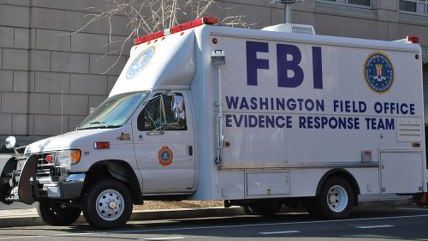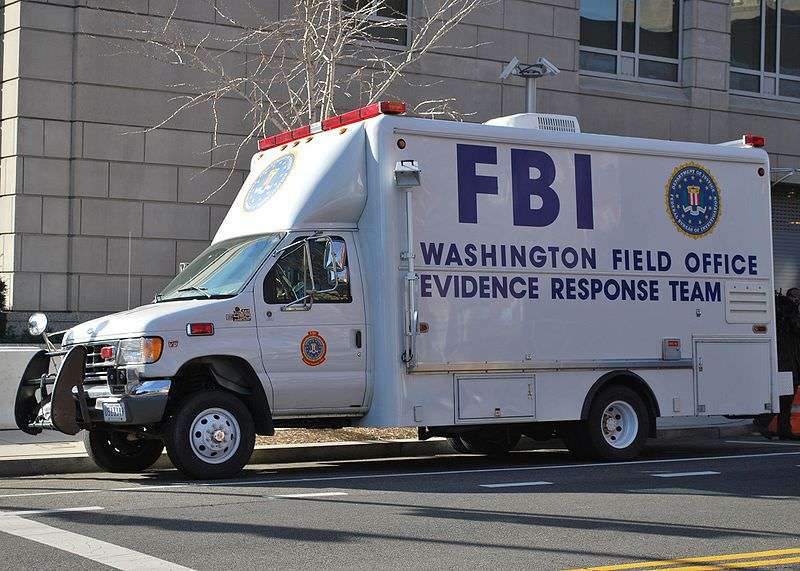Finally, Government Surveillance to Get Behind: FBI to Start Recording Interrogations


The FBI is quietly implementing a major change in policy that potentially has huge—and positive—ramifications for anybody suspected of a federal crime: The agency is going to start recording interrogations of suspects in custody in July. The change was quietly ordered earlier in the month. Previously the agency had a policy against recording interviews. The Arizona Republic obtained the memo:
"This policy establishes a presumption that the Federal Bureau of Investigation (FBI), the Drug Enforcement Administration (DEA) the Bureau of Alcohol, Tobacco, Firearms and Explosives (ATF) and the United States Marshals Service (USMS) will electronically record statements made by individuals in their custody," says the memo to all federal prosecutors and criminal chiefs from James M. Cole, deputy attorney general.
"This policy also encourages agents and prosecutors to consider electronic recording in investigative or other circumstances where the presumption does not apply,'' such as in the questioning of witnesses.
An accompanying message from Monty Wilkinson, director of the Executive Office for United States Attorneys, says the change resulted from lengthy collaborative efforts among DOJ and law enforcement personnel. Media representatives at the Justice Department and FBI did not immediately respond to requests for a more detailed explanation.
Why is this such a huge deal? Because making false statements to the FBI is a crime, and in the absence of a recording, even challenging what an FBI agent claims you said in an interview can get you into trouble. Harvey Silvergate, civil liberties lawyer and author of Three Felonies a Day: How the Feds Target the Innocent, explained, in the wake of the Boston Marathon bombing, how this dynamic resulted in charges against a friend of one of the bombers, a friend who played absolutely no role in the attack:
[Robel] Phillipos is a 19-year-old Cambridge resident, former UMass Dartmouth student, and friend of alleged Marathon bomber Dzhokhar Tsarnaev. He faces charges of making materially false statements during a series of interviews with FBI agents. If convicted, he could get up to eight years in federal prison and a $250,000 fine.
Phillipos underwent four FBI interviews. He is not alleged to have had any advance knowledge of, much less role in, the bombing itself. The FBI was apparently trying to obtain his information and cooperation concerning the role and knowledge of Dias Kadyrbayev and Azamat Tazhayakov, the two Kazakh students who allegedly found and disposed of Tsarnaev's backpack and laptop after he was named a suspect in the bombings.
The public and the media should withhold judgment not only as to what Phillipos did or did not do, but also as to what he did or did not say when questioned by FBI agents. Indeed, the public should look skeptically at the accuracy of any FBI claim regarding what transpires in the bureau's infamous witness interviews. Here's why.
FBI agents always interview in pairs. One agent asks the questions, while the other writes up what is called a "form 302 report" based on his notes. The 302 report, which the interviewee does not normally see, becomes the official record of the exchange; any interviewee who contests its accuracy risks prosecution for lying to a federal official, a felony. And here is the key problem that throws the accuracy of all such statements and reports into doubt: FBI agents almost never electronically record their interrogations; to do so would be against written policy. …
Frightened and confused interviewees, who, if they deny they said what any 302 report claims they uttered, can then be indicted for making false statements. The FBI is thus able to put words into a witness or suspect's mouth and coerce him to adopt the FBI's version as his own. The FBI thus establishes the official version of what a witness said, and the pressure on the witness to adhere to the 302 version is enormous. Any deviation, after all, raises the question: "Were you lying during your FBI interview, or are you lying now?"
The Arizona Republic talked to Steve Drizen, a professor of law at Northwestern University of Law who focuses on false confessions and convictions. He is understandably pleased at the policy change:
Drizen said the FBI has obtained a number of false convictions in homicide cases, particularly on Indian reservations, because suspect interviews were not recorded. Drizin also noted that, in some recent trials, jurors have acquitted defendants because they mistrusted FBI testimony about interrogations that could have been recorded.
Not unlike the trend of putting cameras on police, recording the interrogations could keep both sides honest. Not only are suspects protected from the FBI misrepresenting what they've said, the FBI agents are also protected from these same accusations—assuming the accusations aren't true, that is.
Editor's Note: As of February 29, 2024, commenting privileges on reason.com posts are limited to Reason Plus subscribers. Past commenters are grandfathered in for a temporary period. Subscribe here to preserve your ability to comment. Your Reason Plus subscription also gives you an ad-free version of reason.com, along with full access to the digital edition and archives of Reason magazine. We request that comments be civil and on-topic. We do not moderate or assume any responsibility for comments, which are owned by the readers who post them. Comments do not represent the views of reason.com or Reason Foundation. We reserve the right to delete any comment and ban commenters for any reason at any time. Comments may only be edited within 5 minutes of posting. Report abuses.
Please to post comments


Odds that, in the event that a recording might put the FBI in a bad light, the recording will either have been lost, or, gosh darnit, the equipment just wasn't working correctly?
Which is why this sort of policy needs to have conditions baked in whereby missing, damaged, or abbreviated recordings result in the interviewee's deposition being inadmissable. The same goes for cop testimony in cases where records were mysteriously lost or equipment disabled.
yep
Will they record the shootouts that occur during interrogations?
Look, man, the perp picked up a knife or a pipe or something.
"My bad -- it was the mic."
It's incredible this wasn't always SOP. Between this and the nullification news today has had a good couple nut unpunches.
Nut massages?
Palpitations.
Rub and tugs.
We're still lacking a happy ending, as far as I'm concerned.
Well, Paul, that's what your mom is for.
reach around
It'd be nice if they'd start recording their rifle-butt contacts-to-the-backs-of-the-heads of store owners they raid.
That was Border Patrol.
I was being broad about 'federal agencies'.
Federal law enforcement should record all fucking encounters. If you have a SWAT team, all your dog-shootings should live-streaming on Youtube.
I am confused. To contest the record is to say you were lying because the record can't be wrong?
FBI agents wouldn't lie. We know they don't lie because they're FBI agents.
Yep. I was threatened (they were unclear what charge I might get) in 1985 for refusing to talk with the FBI unless we were recorded and I got a working copy immediately at the end of the interview.
I did that because I saw just exactly that happen to a distant acquaintance. He eventually "got off" with a misdemeanor perjury charge that he fought and they finally ended up with a court decision that didn't quite make sense to me. Something weird about he was sort of convicted, but it would go away if he didn't get into any more trouble for some period of time.
It was a hell of a fight, in spite of the fact he had FAR more money than I'd ever see to fight it with. The idea scared hell out of me.
Well crap, now the terrorists have won.
How many bullet-riddled cameras are they going to have to replace before they cut the budget for this program?
The interrogators will just have a long nice informal chat with the suspect before they turn on the cameras.
Are they still going to object if the person being interviewed pulls out a recorder?
If I'm not confused this is exactly how they got Martha Stewart after they couldn't prove she knew too much about her investments.
Minnesota has had this requirement for at least 10 years. The most outrageous case caught by the built-in recording system was that of an FBI "Interrogation Expert" from Milwaukee who repeatedly ignored an interviewee's 18 requests to speak to a lawyer. That caused all the evidence from the interview (and most evidence found afterwards) to be excluded. The interviewee almost got away with child murder. No one locally, by the way, defended the Agent's outrageous and unconstitutional "KGB" tactics. As usual, he did, however, get promoted.
SWAT raids also need to be recorded. We are getting too many agents who are nothing more than bullies and we need to hold these people accountable.
What possible excuse could there be for a policy against recording interrogations? If that's not suspicious on its face I don't know what would be, yet they have gotten away with it for decades. Any interrogation or evidence collected in a raid that isn't recorded in some manner should be inadmissible in court.
An attorney friend of mine in AZ has a client who has spent the past 24 years on death row thanks to a supposed confession that wasn't even written down let alone recorded. The cop, who had a history of lying under oath (which was of course withheld from the defense) got on the stand and claimed the defendant admitted guilt. She always denied it but since cops never lie the jury convicted and gave her death. The 9th Circuit finally tossed the conviction last year but the state is going to try her again, still with no more evidence than the dirty cop's word against her.